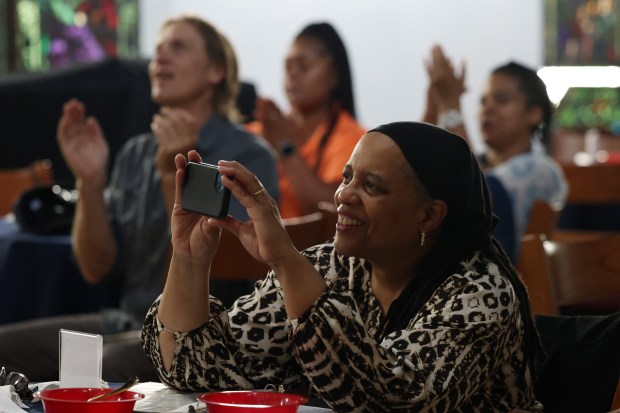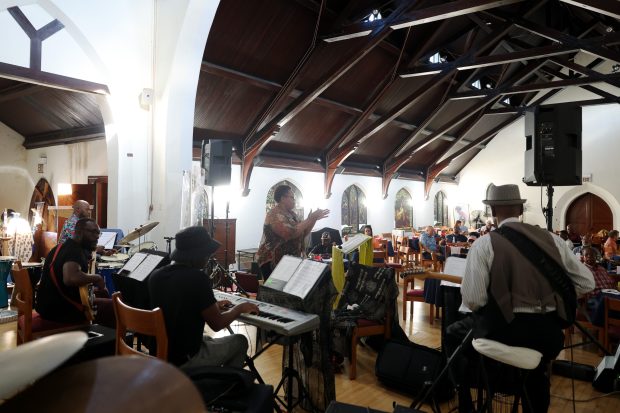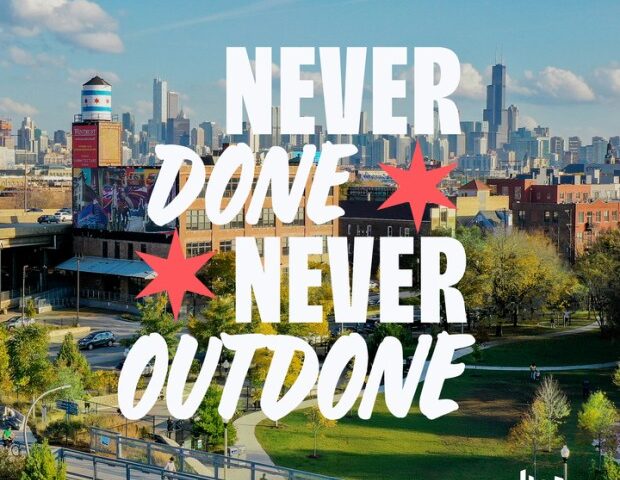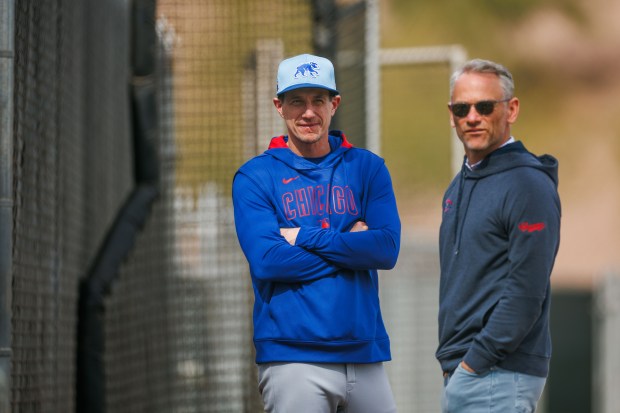If Chicago’s annual Blues Festival in June whet your appetite for more blues this summer, the Chicago Park District’s Night Out in the Parks aims to give you what you crave with “Chicago Bound: The Great Migration of the Blues.”
The free concert series is an amalgamation of song and story behind the musical genre that traveled with those fleeing the South in the early 1900s for more opportunities in the North. The 90-minute program is a collaboration between friends Lucy Smith of the Lucy Smith Quintet and journalist Cheryl Corley — the former, a longtime jazzer, singing songs of notable musicians like Otis Rush (“Double Trouble”), Koko Taylor, Memphis Minnie (“In My Girlish Days”) and Lillian “Lil” Green (“Why Don’t You Do Right”), while Corley shares and narrates the stories behind the songs and artists.
“It’s telling the stories that come with the song,” she said. “With the ‘Great Migration of the Blues,’ you have these blues musicians who were traveling to Chicago, getting away from all of the restrictions that were there with the Jim Crow era and coming to a place where they thought at least there was going to be more freedom and hope. You hear that in their songs, you learn about their travels, you learn about how Maxwell Street was the location and the birthplace of Chicago blues. You learn about how the sound of blues changed as it came from the South. Because it was Delta blues, they were playing in nightclubs at Maxwell Street for tips and the music changed, it became electrified.”
Smith said the origin story of the concert series stems from a Goodman Theatre project in 2013 when Cheryl West’s “Pullman Porter Blues” was being staged. Smith came up with a supplemental musical counterpart to the play. It was the first time she and Corley collaborated with a script, narration and Smith leading the band.
“We did that show in 2013, but in 2016, when the City of Chicago was celebrating the centennial of the Great Migration, that was an opportunity for me to send a proposal to the Chicago Park District (Night Out in the Parks) for us to do this show again,” Smith said. “We did it in three parts in 2016. And that’s what we’re doing this year.”
Smith said blues heavyweights like Willie Dixon, Muddy Waters and Howlin’ Wolf are featured, but so are women and their voices. In compiling the program, Smith learned that “Why Don’t You Do Right” was a good hit for Green. But, Peggy Lee recorded it after her and it became a monster hit. This song, like others created by Black people and appropriated by white artists, is often recognized as Lee’s moreso than Green’s.
“What was interesting was learning the history about these people and about Lillian Green because she was a big star at the time in the ’30s and ’40s and just so well known,” Corley said. “It just goes to show you how fame can be somewhat fleeting, but also, the impact that people have had, you might not know.”
The duo has done four shows like this together since 2013. They’ve done a tribute to gay people in Gospel Music and another project that combined the poetry of Gwendolyn Brooks with the music of Curtis Mayfield called “Chicago Soul in Action.” Smith would like to mobilize all the works to present them at more places in the Chicago region and beyond.
“We do a journey — acoustic stuff, voice and guitar, and there’s a part where I do a little a cappella section to speak to the origins of the music as well,” Smith said. “It was really difficult trying to figure out which tunes to put in the show.”
“All of these shows are an opportunity to show off Chicago, and to make folks feel good about where they are. I think, unfortunately, we don’t hear enough of the good news and the good news is historic. I think it’s wonderful the show does give people an opportunity to think about how am I connected to this? How many generations of my family have been here since the mid-1900s?” Smith said. “We mention this in the show, Cheryl asks: How many of you had the tradition of going down to Maxwell Street after church on Sunday? And I put both of my hands up. I didn’t realize that I was living history at the time.”

In sharing the musical history, Corley also shares some history about the parks that the series are performed in — details about the splendor and importance of the green space. Smith envisions getting to make music in every community in Chicago, so audience members don’t have to come downtown to enjoy it.
“Good music, good history, good uplift … that’s what we hope to do with these shows,” Corley said.
Park performances are scheduled for:
- 6 p.m. July 6 at Ellis (Samuel) Park, 3520 S. Cottage Grove Ave., in Bronzeville’s Douglas neighborhood
- 3:45 p.m. Aug. 3 at Ada (Sawyer Garrett) Park, 11250 S. Ada Street, during the Morgan Park neighborhood’s Roots Festival
- 6 p.m. Sept. 6 at Warren (Laurence) Park, 6601 N. Western Ave., in the West Ridge (West Rogers Park) neighborhood
All performances of “Chicago Bound” are free to attend and appropriate for all ages. For more information, visit lucysmithjazz.com





